Jimmy LaFave and sweet home Chicago House
Peg and Glynda's songwriter haven was a light in the shade of Sixth Street
There used to be an upstairs coffee shop with singer-songwriters on Trinity at Sixth Streets called Chameleon’s, but it opted out of the jungle after two years in ‘86, and moved to Brodie Oaks. The relocation couldn’t save it, however, and Chameleon’s closed after less than a year on South Lamar.
That left Jimmy LaFave without a place to play. Nobody else in town would book the Stillwater, OK transplant, so two of the four Chameleon’s partners- Glynda Cox and Peg Miller- got the lease back at 607 Trinity and took the name of the railroad workers hotel built in 1842 at that location.
“LaFave literally was the impetus for Chicago House to open,” Miller told the Statesman in ‘89. Comparing his songwriting to that of his hero Bob Dylan, with “the best voice you have ever heard,” Miller said she and Cox “couldn't believe (LaFave) wasn't getting gigs. We thought, ‘this is insane.’ There has to be a place for people who are doing their own music to be heard.”
Chicago House opened in June 1987 and somehow made it eight years, with Cox and Miller clawing for survival every step of the way, even bagging up aluminum cans to pay the electric bill. After six months they renegotiated an unreasonably high $3,000 a month rent, but never wavered on their commitment to provide a space that nurtured talent, not just in music, but theater, poetry and dance.
Just 10 months after they opened, the lesbian couple was attacked one night walking to their car, with Cox stabbed 14 times with a screwdriver. But they were back on Trinity as soon as they were able, with Miller at the soundboard and Cox at the door.
If the Broken Spoke seems incongruous amongst the condos of South Lamar, consider a folk music club in the middle of a bass-thumping Sixth that was just starting to get Dirty. But on a good night, Chicago House made you feel like you were in Greenwich Village in the ‘60s. Besides LaFave, regulars included Tish Hinojosa, whose Estrella Noche (1991) was Watermelon’s best-selling album; a 19-year-old kid from San Angelo named Will T. Massey, who would soon be signed to MCA and co-produced by Roy Bittan of the E Street Band; former attorney David Rodriguez, returning to his songwriting roots with Man Against Beast, a 15-song cassette recorded live at Chicago House in 1990; and Jo Carol Pierce, a crisis hotline operator whose Bad Girls Upset by the Truth brought her national recognition- and a tribute album- as a songwriter of rare depth.
Austin is not a special music town for what happens in the big venues or weekend festivals. It’s the small places on weeknights, like the Wednesday Alejandro Escovedo, still smarting from the breakup of the True Believers, found out his songs didn’t need to hide behind electric guitars.
Not just for nervous first-stagers, the Chi House open mic, which added Monday in year two, was also where veteran songwriters would unveil new songs, much like name-standups working out material in comedy cellars. Bluesman Chris Thomas King was signed to Warner Brothers based on a performance at the Chicago, but he kept coming back to open mics to keep his songs sharp and to soak up what he could from others.
“It was like a competition among songwriters,” Barb Donovan said in Kathleen Hudson’s 2013 book Women In Texas Music. “There was nothing in your world but writing the next song… I don’t think a club has matched that energy again.”
Chicago House was open a year before I left Austin in June ‘88, but I didn’t go there that I remember. I liked to go hear loud bands, leaning against the back wall with a Shiner Bock. I would see the name Jimmy LaFave in the club listings, but like all the other cool kids I ignored him.
Then I heard that voice! Not in a club, but on a raw video on the Austin Music Network circa 1990. If someone could turn your head on channel 15, they were something special. The video’s credits said the recording was produced by Bob Johnston for Tomato Records. THE Bob Johnston, who produced Dylan and Cash and Simon & Garfunkel? Yep. That put LaFave on my radar like a tank transport plane, even though it was a bad deal with Tomato, and the record didn’t come out. The best cure for LaFave’s depression over that was an enrapt audience in the Trinity House of Song, with his eyes closed and his soul wide open.
When I moved down from Chicago to work for the Dallas Morning News in 1992, there was a box of packages on my desk and one of them contained Austin Skyline, the album LaFave recorded at the Chicago House that would change everything. A fan of the original by the Left Banke, I went right to “Walk Away Renee” and that cover just melted me. Played it over and over again. How could I have been so clueless in Austin?
The album’s timing was good for LaFave because a year earlier, 107.1 FM changed formats from smooth jazz to an Adult Alternative Album playlist with KGSR. As Joe Gracey had done before him at KOKE-FM, KGSR’s program director Jody Denberg put an emphasis on local artists, so Joe Ely and Eliza Gilkyson held their own with Bob Dylan and Emmylou Harris. As the format, also called Americana, gained stations across the country, programmers checked KGSR's song rotation for tips on what to add, giving national airplay to not only LaFave, whose original “Only One Angel” lit up request lines, but other local acts like Ruthie Foster, Slaid Cleaves, and Kelly Willis.
"It's amazing how you can plug away for 10, 15 years, very slowly building up your audience, and then you get a little bit of airplay and `Boom!' the next thing you know, your shows are packed and everybody's calling to find out where they can get the record," LaFave told me in ‘92.
But he never forgot Chicago House, returning to play benefits, or just dropping in unannounced to unveil a couple newbies. It remained his home base until the rent and the Sixth Street hassles got too high, and the House was forced to close in 1995. Eight years is an eternity when you’re not booking for bar sales.
The three heroes most responsible for “the atmosphere that produced a mountain of songs” (Donovan), all passed away in their ‘60s. But what a lasting impact they made.
Glynda Cox, who died in Feb. 2008, was 64.
Peg Miller passed away in Jan. 2020 at age 67.
Jimmy LaFave succumbed to a rare form of cancer three days after an emotional appearance at the Paramount Theater on May 18, 2017. He was 61.
Hear him sing “In My Life” by John Lennon
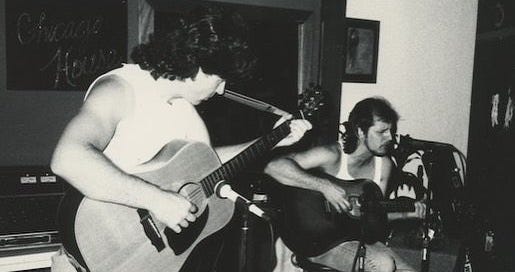



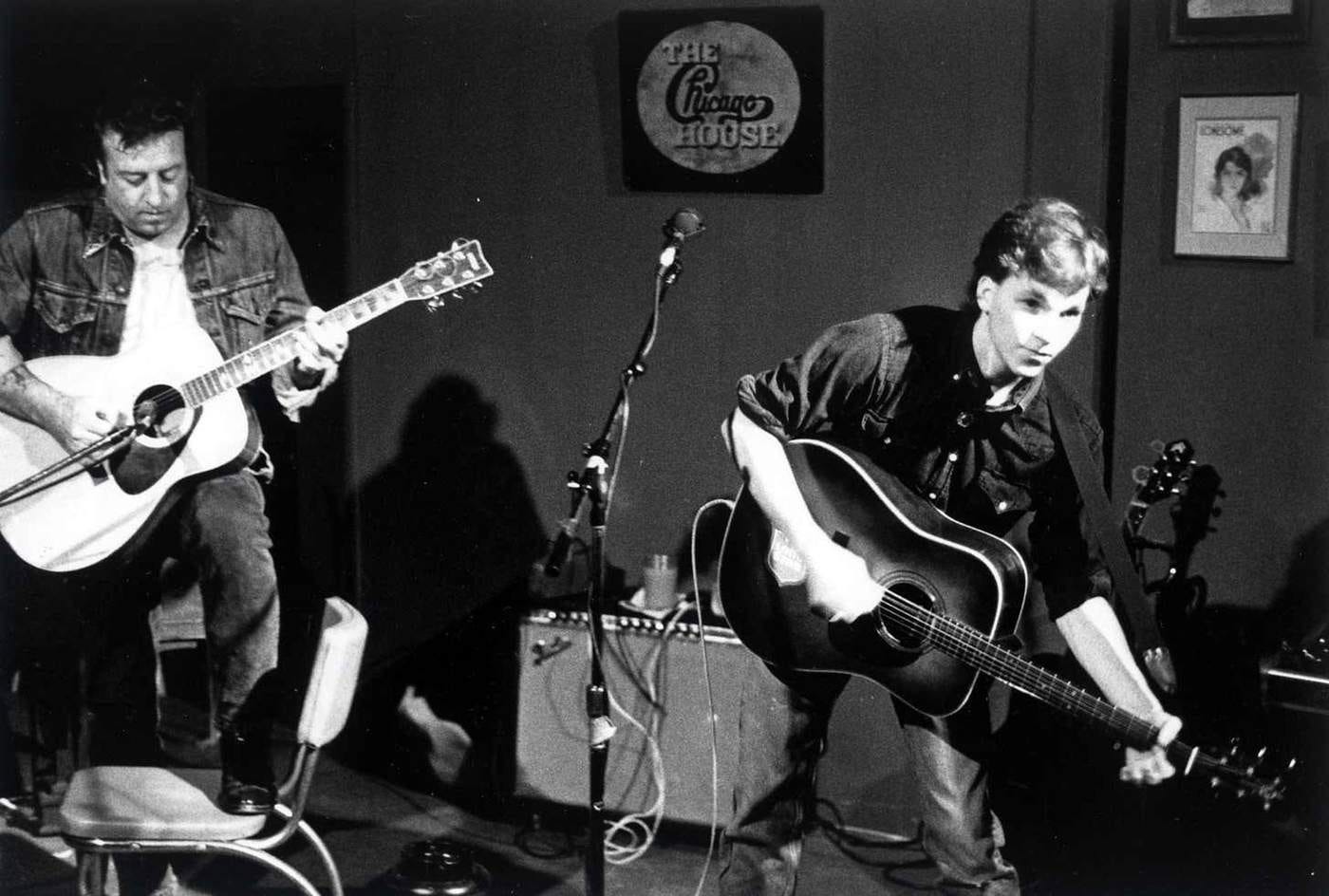
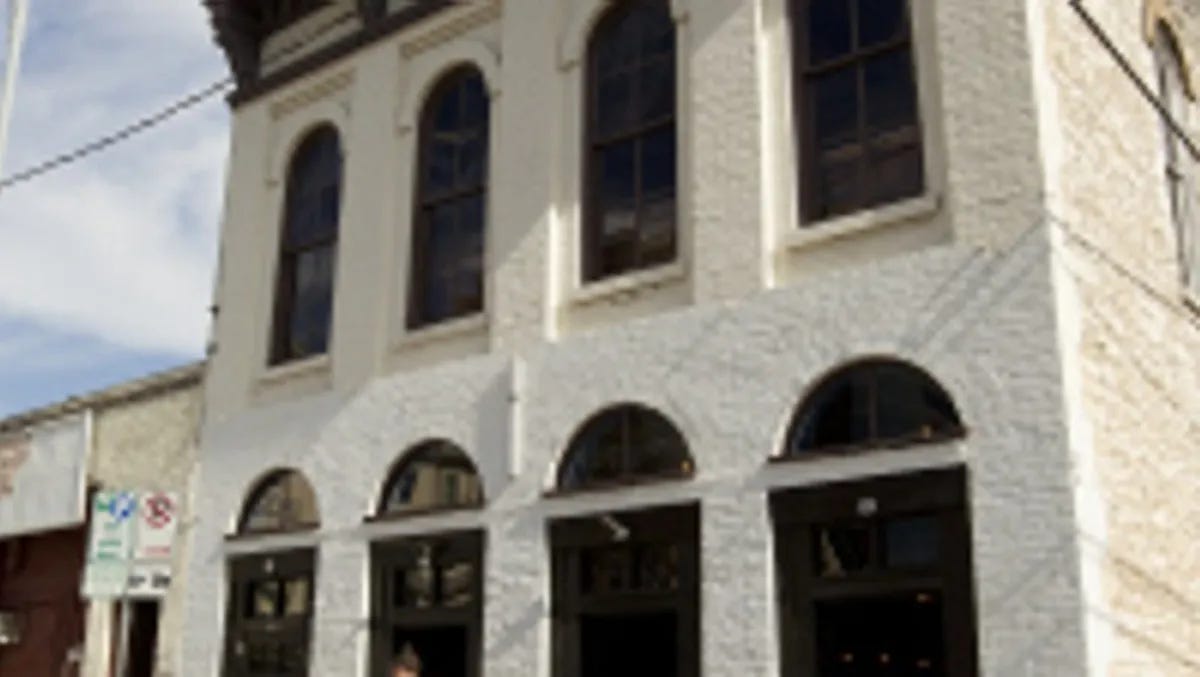
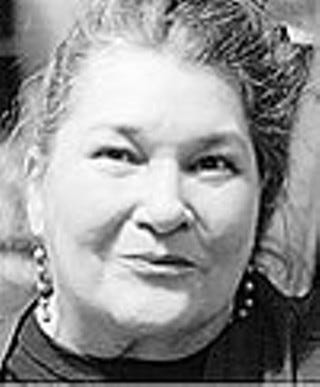
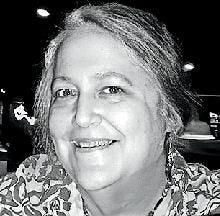
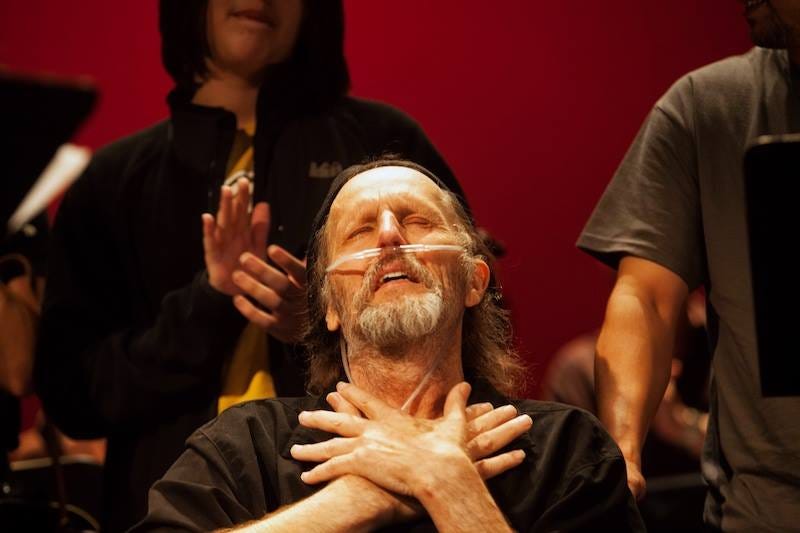
Thanks! I've really been enjoying these articles! Except when I realize how much I missed out on!
Another excellent story on the Austin vibe. Thanks Michael for keeping us informed ! Just saying. Ketch 👍✌️😎🤠